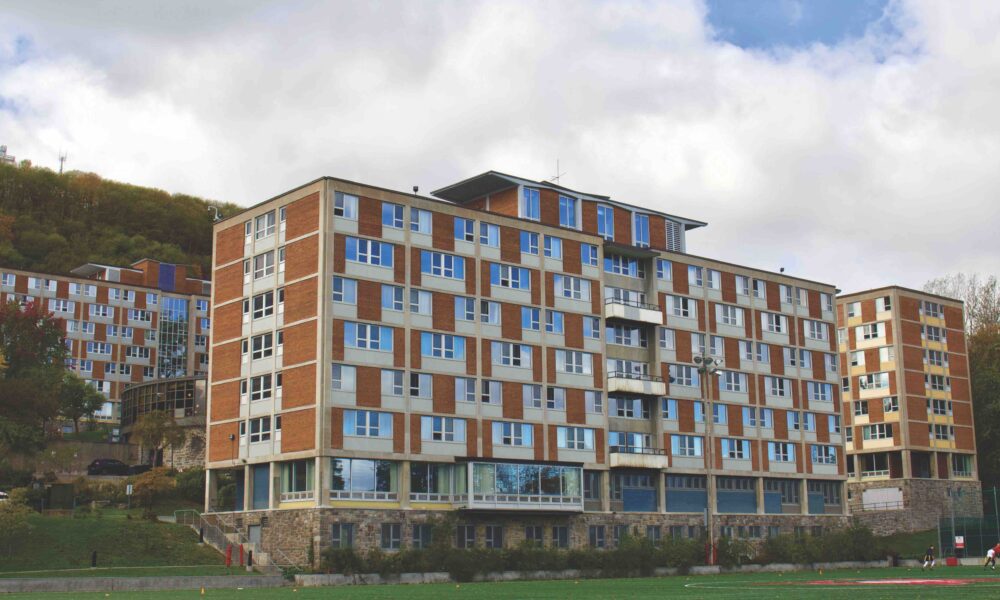It has been 15 months since the expiration of the collective agreement (CA) between floor fellows—upper-year students who live in residences to support students—and McGill. A new agreement has yet to be instated as parties remain in deadlock over issues such as the fellows’ wages, meal plan dollars, guest policies, and the university’s reluctance to include harm-reduction and anti-oppressive principles in the CA.
Floor fellows have been operating on a grey interim agreement since the previous CA expired on July 2, 2020. This means that they are compensated according to the expired agreement and also defer to the rules and regulations set out within it.
In an interview with The McGill Tribune, Chris Soong, a first-year doctoral student studying Collaborative Piano and floor fellow in Solin Hall, explained why a CA is important for floor fellows.
“[Having a CA] lets us know what we will be responsible for and how we are going to be treated through the year,” said Soong. “Without the collective agreement, if something slips through, there is nothing to hold the administration accountable.”
Under the expired CA, floor fellows receive a meal plan valued at $4,500 a year, the majority of which must be spent on campus at dining halls and cafeterias. According to sources, Solin Hall floor fellows are allocated $100 a month for groceries, although the average monthly expenditure on food costs in Quebec is estimated to be $328 per person.
According to Christian Tonnesen, U3 Science and vice-president floor fellow of the Association of McGill University Support Employees (AMUSE) Unit B, the union representing the floor fellows, AMUSE has proposed to increase the amount of the meal plan to $5,600 a year. They are also pushing for Solin Hall floor fellows to receive at least half of their compensation in grocery credits—money that can be spent at grocery stores instead of campus dining halls and cafeterias. Soong calculated how far $4,500 goes in a dining hall and concluded that the budget, on average, provides for a meal and a half per day. The meal plan for Floor Fellows has not increased since 2017, although the mandatory meal plan prices for students living in residences have gone up from $4,575 in 2017 to $5,475 in 2020.
Floor fellows live in residence for a fee deducted from weekly paychecks and receive minimum wage—$13.50 an hour—for an expected 13 hours of work per week. Duty shifts such as patrolling hallways are not included in the 13 hours of work and are considered as “additional hours.” This work includes being on duty, which consists of remaining in the building, being sober and accessible to all students, completing supervision rounds. Floor fellows are also responsible for scheduling and attending meetings with the Residence Life Manager, planning activities, and being available to support residents in crisis. In view of these responsibilities, Tonnesen explained, floor fellows are seeking a pay increase.
“The pay is not substantial, especially considering the emotional and physical toll the job takes on us,” Tonnesen said. “We proposed that [pay be increased] to $18 […] and [McGill] came back with a crisp $13.64 an hour.”
AMUSE is fighting for other changes in the CA, such as modifying restrictions on guest policies and compensating Floor Fellows for extra hours during move-in week. Another issue in the negotiation process is McGill’s refusal to include harm reduction and anti-oppressive principles directly in the CA.
“[In residence, anti-oppression looks like] recognizing that the institutions we participate in are deeply seated in racism and colonialism and actively helping students unlearn these micro-aggressions,” said Tonnesen. “Harm reduction is the basic principle of meeting people where they are at in regards to substance use [.…] I have seen a degradation of [harm reduction] policies. That is the reasoning for needing it in the CA.”
McGill media relations officer Frédérique Mazerolle declined to comment on details about the ongoing discussion with AMUSE Unit B, writing in an email to the Tribune that “the University will let the conciliation process run its course.”
A previous version of this article stated that floor fellows live free of charge in McGill residences and that floor fellows are expected to do approximately 13 hours of week per week. In fact, fees for living in residences are deducted weekly from floor fellows’ paychecks and the 13 hours of work does not include duty shifts, which are considered additional hours. The Tribune regrets the error.









